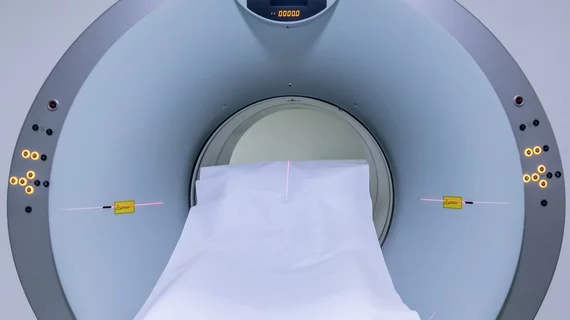94% of silicone breast implant recipients neglect FDA screening recommendations
While the FDA has been recommending routine MRI screenings for silicone breast implant patients since 2006, a new Plastic and Reconstructive Surgery study revealed that only 6% of women actually followed the screening guidance at the time of the study. (The FDA subsequently updated its guidance in 2020 to slightly adjust its recommended screening timelines, but still calls for regular MRI screenings).[1]
To determine compliance rates, Libby R. Copeland-Halperin, MD, of Brigham and Women’s Hospital in Boston, and coauthors conducted telephone surveys with women who received the surgical implants between 2011 and 2016. Only 15.6% of respondents said they had an MRI at any time after implant placement, and just 5.9% had an MRI within the FDA-recommended timeframe.
MRIs are an effective way to detect asymptomatic implant rupture, which occurs in approximately 8% of all silicone breast implant recipients—but the study’s authors note that many patients may not be aware of this key fact.
“Low adherence suggests that without repeated reinforcement, the importance of this recommendation may not be apparent to patients several years following surgery," the authors write.
The low adherence rates are likely exacerbated by the fact that many patients don’t have insurance that covers follow-up visits, so they may skip those as well—meaning they won’t speak to doctors who would remind them about the MRI recommendations and stress their importance.
"Unfortunately, because routine, asymptomatic follow-up visits several years postoperatively may not be covered by insurance policies and cosmetic procedures/follow-up are not covered by insurance, many patients may not return for follow-up around the time MRI would be due," the authors write.
Many more women—53% of those surveyed—had undergone ultrasound or mammography after their implant placement, citing reasons including cellulitis, cancer surveillance, and pain. While these alternative modalities may also detect some instances of implant rupture, they are less sensitive than MRI. However, both ultrasound and mammograms are also less costly, leading to some debate over the FDA recommendations.
In 2020, after the study’s research was conducted, the FDA adjusted their guidelines to recommend that people with silicone breast implants undergo MRI screening between five to six years after initial placement, and every two to three years thereafter.
Previously, the recommendation was to undergo MRI screening three years after surgery and every two years thereafter.
"It is possible that the new guidelines may improve patient adherence, though further studies are needed to determine this. Similarly, the perception of the guidelines among plastic surgeons may also have changed with the updated recommendations," Dr. Copeland-Halperin commented in a statement about the study.
